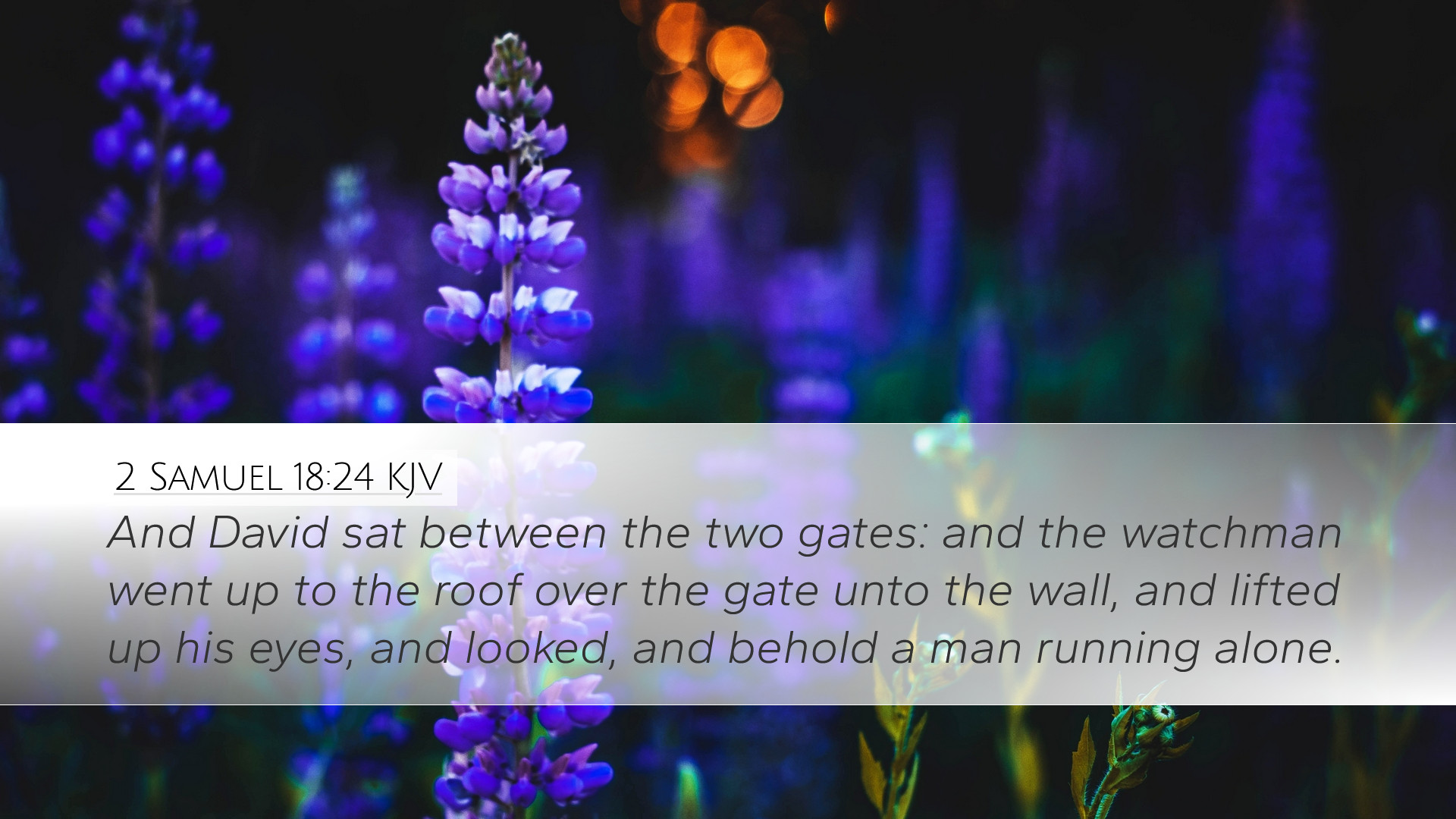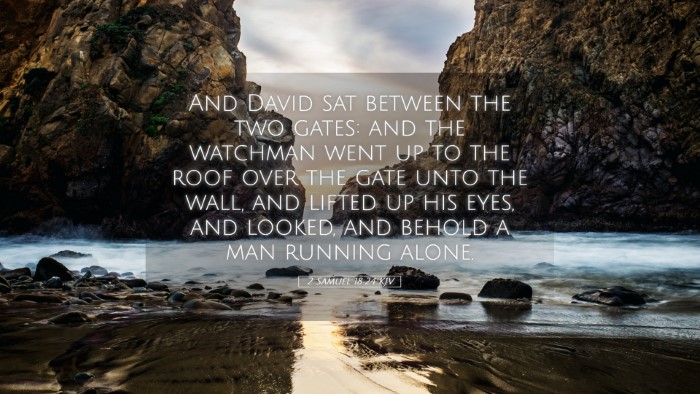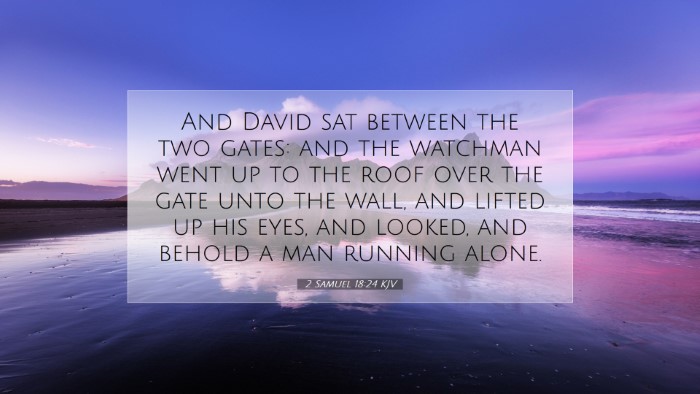Commentary on 2 Samuel 18:24
2 Samuel 18:24 states: "But David sat between the two gates: and the watchman went up to the roof over the gate unto the wall, and lifted up his eyes, and looked, and behold a man running alone." This verse serves as a poignant scene in the narrative of King David's reign, highlighting themes of watchfulness, anxiety, and the anticipation of news concerning his son Absalom. The following insights derive from various public domain commentaries to deepen our understanding of this important passage.
Contextual Background
The context of this verse is critical for its interpretation. Absalom, David's son, has led a rebellion against his father, and the battle has reached its climax. David's emotional state is layered with concern for his son amidst the chaos of war. The setting of David sitting between the gates symbolizes his position of authority, but it also reflects the turmoil within his heart as a father who fears for the life of his child.
Insights from Matthew Henry
Matthew Henry highlights the significance of David's position at the gates. He points out that David, during a tumultuous time, is both physically and spiritually positioned as a watchman over his kingdom and family. Henry emphasizes the importance of vigilance in moments of crisis, suggesting that David’s anxious waiting symbolizes the heart of a godly parent concerned for the well-being of their children.
- Watchfulness: The act of sitting at the gates illustrates the necessity of spiritual and practical vigilance in leadership.
- Emotional Turmoil: David’s position reflects the emotional weight of a father concerned deeply for Absalom, manifesting a universal parental fear.
- Implications for Leadership: Leaders are called to be aware and alert, not just politically, but also in heartfelt concerns for those they lead.
Insights from Albert Barnes
Albert Barnes draws attention to the critical role of news in this passage. He notes that the watchman representing hope and dread as news can both uplift and bring despair. The solitary runner symbolizes the uncertainty of the tidings that are about to be delivered.
- Symbolism of the Runner: The individual running alone can be seen as a harbinger of news—either good or bad—representative of the wait that leaders often endure.
- Anticipation and Anxiety: Barnes points out that David's anxious waiting mirrors the inner conflict experienced by leaders during crises.
- News as a Catalyst: The act of waiting for news serves as a poignant reminder of the impact of communication on decision-making and emotional states.
Insights from Adam Clarke
Adam Clarke offers a detailed examination of the geographical and cultural implications of David's position. He notes that the location of the gates is significant, providing a vantage point for both strategic defense and personal anguish.
- Cultural Significance of Gates: In ancient Near Eastern culture, city gates served not just as entrances but as places of gathering where pivotal news would convene.
- David’s Dual Role: Clarke observes David’s duality as both a king and a father—his duties as a monarch are interwoven with his personal grief.
- Physical and Spiritual States: The waiting at the gates symbolizes a deeper spiritual condition, as it highlights a yearning for divine intervention amidst adversity.
Theological Reflections
This scenario in 2 Samuel 18:24 offers rich material for reflection on several theological themes:
- The Nature of Leadership: David's role emphasizes the burdens leaders bear and their responsibility to be attentive and responsive in times of crisis.
- The Heart of God: This verse invites readers to consider God’s heart towards wayward children and the emotions that accompany grace and justice.
- Anticipation of Divine Intervention: The act of watching and waiting reflects a universal human condition—seeking God’s will and understanding through anxious situations.
Conclusion
The insights gathered from Matthew Henry, Albert Barnes, and Adam Clarke provide a multifaceted understanding of 2 Samuel 18:24. This passage invites us to consider the complexities of human emotion, the responsibilities of leadership, and the spiritual condition of waiting for news that can change the course of our lives. David's experience serves as a poignant reminder of God's presence in our anxieties and the importance of remaining vigilant in both personal and communal faith journeys.


